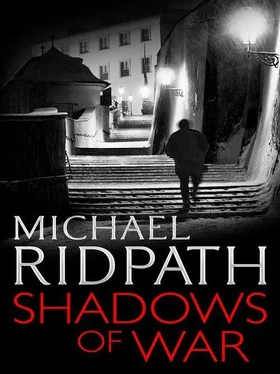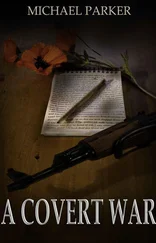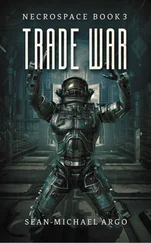She hated deceiving him, but she had had no choice. She couldn’t tell him she had already found her war work, which was why she was in London.
‘Where is Conrad off to?’ she asked. ‘I assumed he was returning to barracks, but he was a bit evasive. Is his battalion going over to France?’
‘Heston Airport. He’s flying to Holland to see Theo,’ Lord Oakford said.
‘No!’ That made Millie think. ‘Do we still go ahead with our plan?’
‘Oh, yes,’ said Oakford. ‘It will be all right.’
‘I hope Conrad never finds out. He would be furious.’
‘He won’t find out,’ said Oakford.
Millie had been excited to help her father. She had been brought up by him as a pacifist, as had Conrad and the other de Lancey children. She understood what her father was trying to do, and thought he was right to do it. But she knew Conrad wouldn’t approve at all.
‘Here we are.’
They were outside a grand white house just to the south of the park, which had been converted into flats. Lord Oakford rang a bell, a maid answered and they followed her up some stairs to the second floor.
‘Lord Oakford and Miss de Lancey, sir,’ the maid announced as she led them into a drawing room.
Sir Henry Alston rose to greet them.
Millie repressed a shudder as she took his hand. Alston was a fellow director of her father at Gurney Kroheim, her father’s merchant bank. She had met him on a number of occasions before — at dinner parties at Kensington Square and he had been to stay the weekend at Chilton Coombe — yet she had never quite become used to his ravaged face.
‘Millie, there’s someone I want you to meet.’ Alston turned to a pale, dark-haired girl of about Millie’s own age.
‘Lord Oakford, Millie de Lancey, this is Mrs Scott-Dunton.’
‘Constance,’ said the girl, holding out her hand to Millie. She was smiling broadly. ‘I’m so pleased to meet you. This is going to be quite an adventure.’
Bloomsbury, London
It was easy for Anneliese to identify Bloomsbury House; it was the impressive mansion on the southern side of Bloomsbury Square with the queue of Jews outside it. It reminded her a bit of the British Passport Control Office in the Tiergartenstrasse in Berlin. There the Jews were queuing for visas for Britain or Palestine. Here they were queuing for food, distributed by the Jewish Refugee Committee. Just as Anneliese had managed to slip ahead of the queue in Berlin with Conrad to see Captain Foley, the Passport Control Officer, now too she walked right in, feeling just as guilty. But she had an appointment.
Wilfrid Israel had a tiny office in an upper floor of the building. He had thinning blond hair and blue, tired eyes. His suit was immaculately cut and, despite his fair complexion, he exuded the sophistication of a wealthy Berlin Jew. And he was wealthy, or at least he had been. His family had owned N. Israel, one of the most upmarket department stores in Berlin, until he had been forced to relinquish it to Aryan owners.
‘Fräulein Rosen! I’m so pleased to meet you at last,’ he said in German, smiling. ‘And in safety too. Please. Have a seat.’
‘Thank you for agreeing to see me,’ said Anneliese. ‘And in particular, thank you for getting me out of the camp.’ The wife of the commandant of Sachsenhausen concentration camp loved to shop at N. Israel, which had given Wilfrid some influence.
‘Not at all,’ said Wilfrid. ‘Mr de Lancey and Captain Foley were quite insistent.’
‘I owe you my life,’ Anneliese said. ‘As I’m sure do many of the people out there.’
Wilfrid gave a tired smile. ‘Yes. But there are so many more back in Germany whom I couldn’t help.’
‘When did you get out yourself?’
‘In the spring. Berlin finally became untenable. How do you find London?’
‘It’s hard,’ said Anneliese. ‘My father is a doctor, but they won’t allow him to take a job. And my mother is a cleaner.’
‘At least you have found something,’ Wilfrid said, indicating Anneliese’s nurse’s uniform.
‘Yes, I’m working at St George’s Hospital. There are good things about London. My family is safe. And when you bump into a bobby in the street he is more likely to give you directions than lock you up.’
‘And they know how to queue.’
‘And if you tread on their toes, they apologize.’
Wilfrid laughed. ‘But they can be difficult to get to know. Even the English Jews.’
‘I thought you were English yourself?’ Anneliese said.
‘Half-English,’ Wilfrid said. ‘But I miss Berlin. The old Berlin.’
‘Before the Nazis came,’ said Anneliese.
Wilfrid nodded. Then he checked his watch. ‘Anyway, what can I do for you Fräulein Rosen?’
‘I wanted to see if you could help me find some work.’
Wilfrid’s expression became more businesslike. ‘I’m afraid we employ all the people we can already here. And besides, I can see that you have a worthwhile job already. Unlike most of the people out there.’
‘No, not working here,’ said Anneliese. ‘Doing something for the war effort. Against the Nazis.’
Wilfrid raised his eyebrows. ‘And how would I be able to help you with that?’
‘Perhaps through Captain Foley?’ said Anneliese. ‘I did help him with some secret work once in Berlin.’ She had persuaded her uncle, who worked for an aeroplane manufacturer, to pass plans of a new fighter plane to the British. Conrad had suggested it as a way of encouraging Foley to issue her father a visa for Britain. ‘I could do it again. I speak German, obviously. I am willing to take risks. And I need to do something, anything, to stop Hitler.’
Wilfrid hesitated, and then smiled. ‘All right, I can ask Captain Foley when I next see him. He’s stationed abroad at the moment, but we do see each other when he is back in London. I can’t think what you would do for him, but he took quite a shine to you in Berlin.’
‘Thank you, Herr Israel. I won’t take up any more of your time.’
Anneliese had a spring in her step as she made her way back towards Goodge Street tube station and the Northern Line. The idea of trying to do something herself to fight the Nazis had come to her after she had seen Conrad. She had no idea where he was going, but he had said he was planning to see Theo. Which meant he was doing something to actively oppose Hitler. Something more direct than simply joining the army and training in the English countryside.
Anneliese couldn’t join the army in an active role, and there was no doubt that being a nurse was helping the war effort, even if at this stage of the war she was dealing with traffic-accident victims rather than air-raid casualties. But now, for the first time since she had arrived in England, she saw a point to life, rather than mere survival.
If only Captain Foley would take her on.
She had suffered a lot in her twenty-eight years. When Hitler had come to power, she had been a medical student at the University of Halle. She and her boyfriend had taken to the streets to protest. They had both been arrested and despatched to concentration camps; she came out after six months, his ashes after two years. Then her father had been locked up for giving his Jewish blood in an emergency transfusion to an Aryan casualty. Desperate to get him out, she had begun an affair with Klaus, a former university friend who had joined the Gestapo. That had not ended well. But somehow, in Berlin, she had always found the resilience to battle on.
In London, things were different. The grey misery of the city, of her family situation, of the loss of the Germany that she loved had borne down heavily on her. She also felt a burden of guilt. It was irrational, but she couldn’t make it go away. She felt guilty about her affair with Klaus. Guilty that she and her family had escaped when millions of other Jews were left in Germany to take their chances.
Читать дальше












